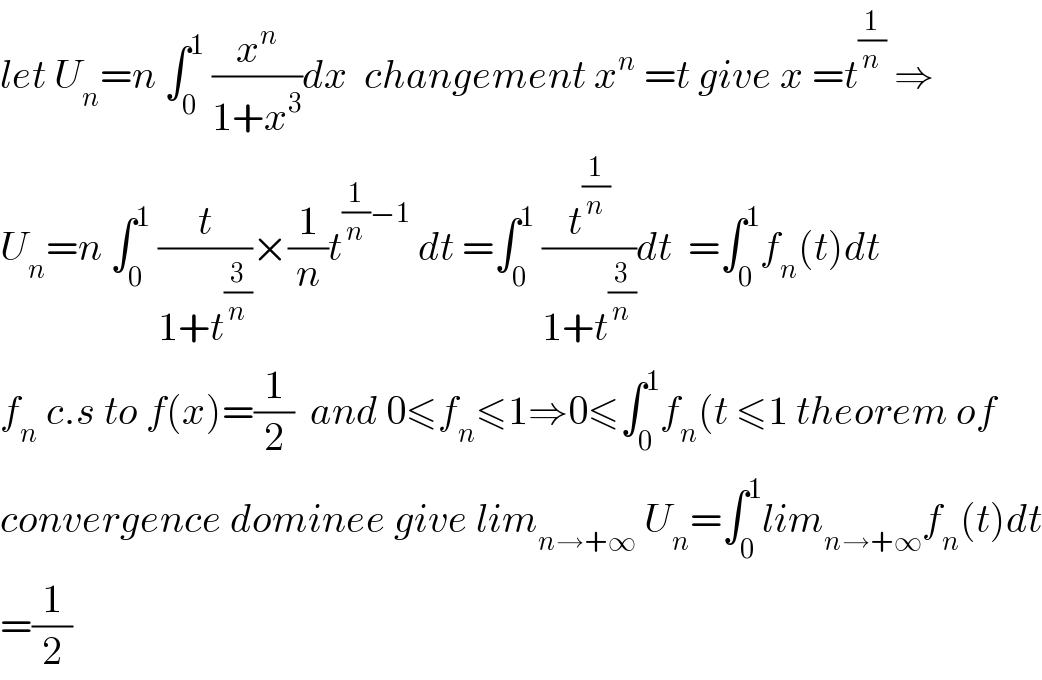
Question and Answers Forum
Question Number 81853 by jagoll last updated on 16/Feb/20

Commented by john santu last updated on 16/Feb/20

Commented by mathmax by abdo last updated on 16/Feb/20

Answered by mind is power last updated on 16/Feb/20

| ||
Question and Answers Forum | ||
Question Number 81853 by jagoll last updated on 16/Feb/20 | ||
 | ||
Commented by john santu last updated on 16/Feb/20 | ||
 | ||
Commented by mathmax by abdo last updated on 16/Feb/20 | ||
 | ||
Answered by mind is power last updated on 16/Feb/20 | ||
 | ||
| ||